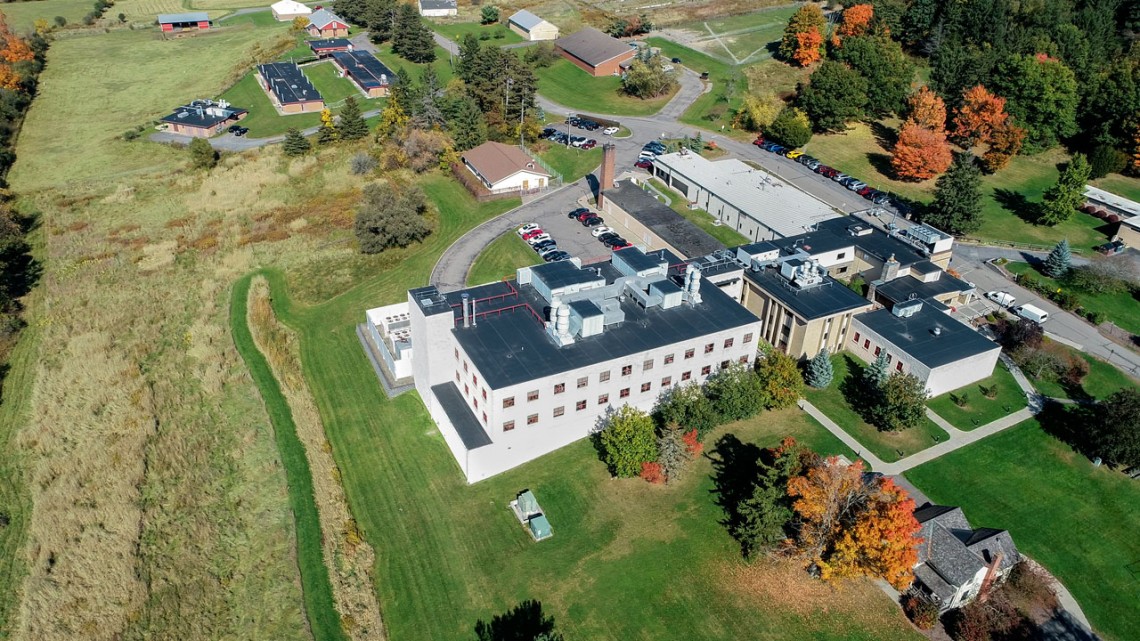
Aerial view of the Baker Institute for Animal Health on Hungerford Hill as it appears today, after a series of expansions. Established in 1950 just east of Cornell’s main campus, the site was close enough to be affiliated with Cornell, but sufficiently isolated for faculty to work safely with infectious organisms.
Baker Institute celebrates 70 years of discoveries
By Patricia Waldron
The Baker Institute for Animal Health has evolved and grown since its founding 70 years ago, on a hill overlooking Cornell University.
The Veterinary Virus Research Institute, as it was called at the time, was formed to address viral diseases in a menagerie of species, including cats, pigs, trout and cattle. Over the ensuing decades, although research on livestock declined, an equine program was established, and the institute’s breakthroughs in the prevention and control of canine infectious diseases established it as a global center for animal health research, including groundbreaking work in immunology, genetics and cancer.
Over 70 years the faculty grew in size, and the institute underwent multiple expansions and renovations to accommodate new avenues of research – but what has not changed is the faculty’s commitment to improving animal health. Through both basic veterinary and biomedical research that underlies our deepest understanding of biology, and applied work that bridges the gulf between laboratory results and new therapies, Baker Institute scientists have continued to tackle challenging problems and emerging diseases.
“The institute has evolved but it has not lost its compass,” said former director Dr. Douglas Antczak, the Dorothy Havemeyer McConville Professor of Equine Medicine. “There has been continual necessary change that has kept the work at the institute cutting edge, forged by the faculty and their passions for different aspects of veterinary medicine and animal health.”
Patricia Waldron is a freelance writer for the College of Veterinary Medicine.
Media Contact
Get Cornell news delivered right to your inbox.
Subscribe

